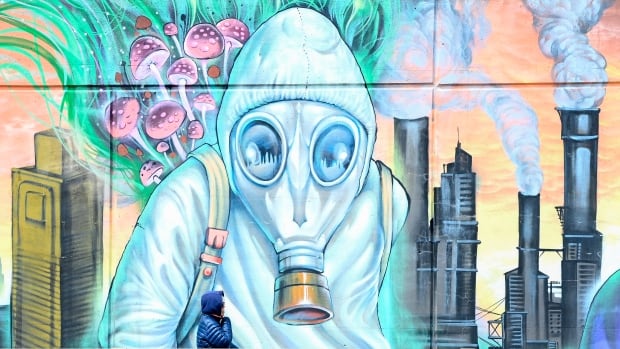Canada’s environment watchdog issued another reality check Thursday, warning that the country has just six years to slash the lion’s share of its emissions to reach its climate goals.
“To meet the 2030 target, the greatest share of emissions reductions will need to occur in the next six years,” says a new report from Canada’s commissioner of the environment and sustainable development.
Thursday’s report recognizes that progress is being made in certain areas but says more needs to happen faster.
Federal Environment Commissioner Jerry DeMarco said he still hopes Canada can achieve its 2030 climate goal.
“It is still possible but now the task is much harder because there is only six years left to do essentially 20 or 30 years worth of reductions,” DeMarco said. “But it is too early to give up. We owe it to our children to keep trying.”
WATCH | Canada’s environment watchdog urges people to not loose hope
Environment Commissioner Jerry DeMarco said Thursday the federal government’s ‘painfully slow’ progress in reaching its climate targets is ‘not a reason to just throw up our hands and say that we won’t make it.’
Since 2005, Canada’s emissions have declined by 7.1 per cent, but we are still a long way off from reaching the reduction of at least 40 per cent required by 2030, the report notes.
In other words, Canada has achieved less than 20 per cent of the goal it set, and now it has six years to reach it.
The report examined 20 climate measures the federal government was implementing and found that “some progress” was being made. The audit notes that nearly half of those measures, like the oil and gas methane regulations, are heading in the right direction.
However, most of the measures faced significant implementation barriers. The audit flagged the delayed oil and gas pollution cap, among others. For example, only Monday did Ottawa release draft regulations for the emissions cap — three years after first announcing it.
Final regulations are not expected until late spring next year.
The audit seemed to acknowledge that the Trudeau government should not be the only one to blame. As in previous reports, Thursday’s suggested that previous Liberal and Conservative governments share Canada’s failure to significantly cut its emissions.
“Canada remains the worst performer among all member countries of the G7 since 1990 and 2005,” the report states in one of its most scathing lines.
The report also called out the provincial governments for not doing their fair share in helping Canada reduce its emissions.
“Reducing greenhouse gas emissions requires effort from governments at all levels,” the report stated.
Most of the measures examined, it added, “faced multi-jurisdictional challenges in their development or implementation.”
Political reaction to the report was less kind to the Liberals.
“The Liberals continuously get a failing grade on every single climate report. They’re letting Canadians down,” said Laurel Collins, the NDP climate change and environment critic.
Environment Minister Steven Guilbeault released a statement responding to the report, noting the commissioner did not dispute the government is on track to achieve its interim 2026 climate target.
“(Our) plan is working. Canada remains on track to meet our 2026 goal under the Canadian Net-Zero Emissions Accountability Act,” Guilbeault said. “Emissions are down, while the economy is at full steam.”








